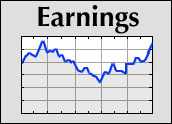
New York Attorney General Eliot Spitzer sued Richard Grasso on Monday, seeking the return of millions of dollars the former head of the New York Stock Exchange is alleged to have received improperly. Spitzer also sued former chairman of the NYSE’s compensation committee, Ken Langone, and said the process used to determine Garsso’s pay was “rigged” and that Langone had knowledge of at least $18 million in compensation that was not reported to the board.
The suit, filed in New York Supreme Court, charges that the exchange’s board was misled on certain parts of Grasso’s package of almost $190 million, that the formula on which it was based was flawed and controlled by Grasso, that the amount was not “reasonable” under state law, and also that Grasso’s dual role as regulator and employee of the exchange created a conflict of interest.
“This case demonstrates everything that can go wrong in setting executive compensation,” Spitzer said, adding that the alleged misdeeds “resulted in a wholly inappropriate and illegal compensation package.” Spitzer noted the suit is being filed under state non-for-profit corporation laws. The filing also names the NYSE, “because it failed to ensure compliance with the not-for-profit-law and made the excessive payments to Grasso,” Spitzer wrote in a statement.
The attorney general said those named in the suit don’t need to respond to it for at least several weeks. During a three-year period, 2001 through 2003, Grasso accumulated $130 million in compensation, the equivalent of 99 percent of the NYSE’s net income during that time. Fees for members of the exchange jumped by $245 million during the same time.
Spitzer also announced that former New York Stock Exchange human resources chief Frank Ashen has reached a deal with state officials over his role in approving Grasso’s package. Under the settlement, Ashen will return $1.3 million to the exchange. In addition, Mercer Human Resource Consulting, a consulting firm asked to prepare a financial analysis of a proposed $187.5 million payment to Grasso, has admitted that its report to the Board contained “inaccuracies and omissions.” It has agreed to return the fees it charged the NYSE in 2003.























































Social Media
See all Social Media